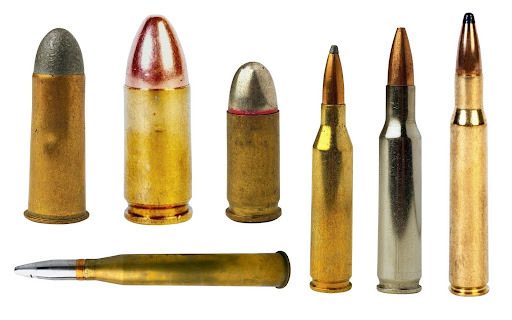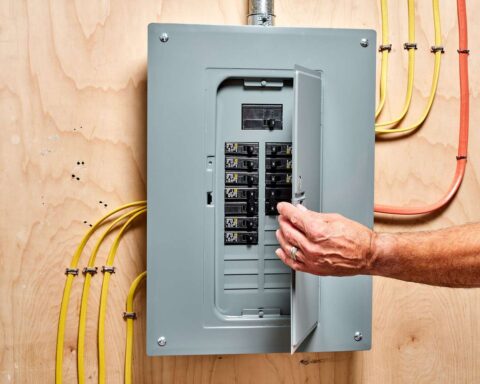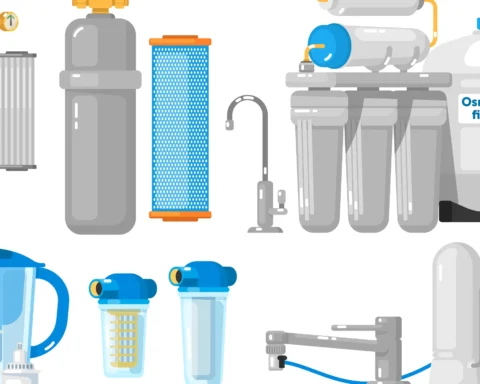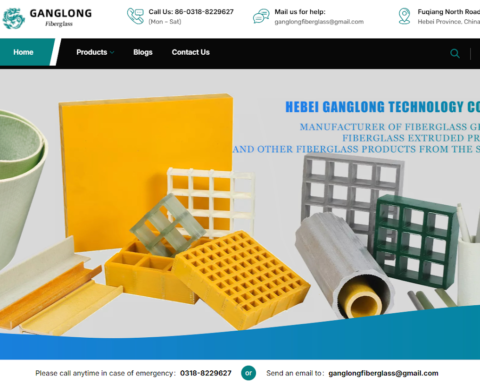Choosing the right reloader brass is vital for your firearm’s performance. This applies whether you’re a seasoned shooter or just starting.
Reloading your own ammo saves money and lets you customize loads for accuracy. However, it requires knowledge, practice, and quality materials to master the art of reloading firearms.
Read on to learn all about the best reloader brass.
Factors to Consider When Choosing Reloader Brass
When it comes to selecting reloader brass, there are a few key factors to keep in mind. Here are some considerations to keep in mind when purchasing reloader brass.
Cartridge Type
The type of cartridge you’re working with is a fundamental consideration in reloading. Each cartridge type has specific dimensions and traits.
They affect performance and compatibility with your firearm. It’s essential to choose brass that matches the caliber of your firearm to ensure a proper fit and function.
Common cartridge types include pistol calibers like 9mm Luger or .45 ACP and rifle calibers such as .223 Remington or 6.5 Creedmoor. Each reloader brass type is made for its cartridge. So, it’s crucial to double-check before buying.
Material
Reloader brass can be made from various materials, each with its own pros and cons. The most common options are brass, steel, and aluminum.
Brass is the traditional choice for reloading due to its durability and malleability. It can withstand multiple reloads without breaking down, making it a cost-effective option in the long run.
Steel is a cheaper alternative to brass but has a shorter lifespan. It’s also more challenging to work with due to its rigidity.
Aluminum is the lightest and cheapest option but is not as durable as brass or steel. It’s best suited for low-pressure loads and may not be suitable for high-powered rifles. High-quality brass selection is vital for ensuring consistent, reliable performance.
Brand Reputation
When it comes to reloader brass, brand reputation matters. Choose trusted brands. They should have a history of making high-quality brass. This will ensure you get the best product.
Check online reviews and ask seasoned reloaders for recommendations. This can help you narrow down your options and choose the best reloader brass for your needs.
Efficient reloading practices can save time and money. But, using low-quality brass can cause poor performance and safety risks. This can result in costly repairs or even injury.
Price
Reloader brass prices vary depending on the material, manufacturer, and quantity. Cheaper options are tempting. But, higher-quality brass lasts longer and works better in the long run.
It’s also essential to consider how much you’ll be reloading for your specific caliber. Frequent shooters may want to invest in high-quality reloader brass.
Occasional shooters may prefer cheaper options. Proper reloader brass maintenance can also extend its lifespan, making it a worthwhile investment in the long run. This can give you peace of mind knowing that you’re using reliable and safe materials for your firearm.
Condition and Availability
The condition of reloader brass is another crucial factor to consider. New brass is clean and ready to use, but it tends to be more expensive. Used or once-fired brass is cheaper.
But, it may need cleaning and inspection for defects before reloading. It is essential to thoroughly check used brass for signs of wear, such as cracks or splits, that could affect performance.
Availability is just as important when selecting reloader brass. Certain calibers might be harder to find or may be in higher demand, affecting both price and quantity. The shooting accuracy improvement of using the same brass repeatedly means it’s essential to stock up on reloader brass for your specific caliber when available.
It is advisable to plan ahead and purchase brass in bulk when possible to ensure you always have enough on hand for your reloading needs. This can help reduce stress and save money in the long run.
Annealing Process
Consider whether or not your brass has been annealed. Annealing is a process that softens the neck of the brass, where it is most likely to become brittle after several reloads.
Properly annealed brass can take more reloads. It is more durable. This leads to more consistent shooting results.
Some manufacturers offer pre-annealed brass, saving you time. Others require you to anneal it yourself. Be sure to assess your needs and capabilities when deciding between these options. This can help ensure the longevity and reliability of your reloader brass.
Primer Pocket Condition
Another factor to consider is the condition of the primer pocket. This component of the brass casing holds the primer in place and plays a crucial role in ignition consistency.
With repeated reloading, primer pockets can become loose. This can cause unreliable ignition and hurt performance. When selecting reloader brass, inspect the primer pocket for signs of wear or deformation.
Brass with a tight, uniform primer pocket will ensure consistent firing. This will make your shooting sessions more reliable.
Headstamp Uniformity
Headstamp uniformity is an often overlooked yet essential factor in choosing reloader brass. The headstamp can tell you much about the brass casing. It shows the manufacturer and the cartridge type.
Uniform headstamps on your brass will help with reloading. It will ensure consistency when tracking performance and troubleshooting issues.
Consistent headstamps can also simplify sorting during reloading. This saves time and effort.
Case Volume and Consistency
The internal case volume of reloader brass can impact the powder load capacity and overall performance of the cartridge. Varying case volume may change pressures and velocities. This can affect each shot’s precision.
Using reloader brass with a consistent case volume can help accuracy. This is important for precision and long-range shooting.
Casual shooters may not care about minor differences. But, competitive shooters and those wanting high accuracy should prioritize this in brass selection.
Considering these factors can improve your reloading. It will help you meet your specific shooting goals.
Different Types of Reloader Brass
Reloader brass comes in various types, each with its own characteristics and uses. Here are some of the most common types of reloader brass available on the market.
45 Colt Brass
The 45 Colt brass, known as the .45 Long Colt, is a classic choice. It is favored by fans of vintage firearms and modern shooters. This type of brass is integral to the reloading of the 45 Colt cartridge, originally developed in 1872 for the Colt Single Action Army revolver.
Today, it remains popular due to its versatility and adaptability. The 45 Colt brass is famous for its high load capacity.
It’s suitable for many uses, from cowboy shooting to self-defense. Its sturdy build lets it survive many reloads. It stays accurate and reliable.
9mm Luger Brass
9mm Luger brass is one of the most widely used cartridges in the world, known for its efficiency and reliable performance. The 9mm Luger brass is vital for reloading ammo. It’s favored by both civilian shooters and law enforcement.
Its popularity is due in large part to its manageable recoil, availability, and cost-effectiveness. This brass can handle a range of load pressures, making it ideal for both target practice and defensive situations.
Reloaders value the 9mm Luger for its durability and consistency. It allows multiple reloads with minimal wear. Being on a continual high demand, stocking up on 9mm Luger brass ensures you’ll have a reliable supply for your reloading needs.
.223 Remington Brass
The .223 Remington brass is a staple for rifle shooters, especially among enthusiasts of semi-automatic rifles such as the AR-15. This brass is engineered for precision shooting, offering excellent accuracy and velocity due to its efficient powder capacity.
Known for its lightweight and minimal recoil, .223 Remington brass is popular in both competitive shooting circuits and for recreational plinking. It provides consistent performance needed for precision at both short and long ranges.
Like other rifle cartridges, .223 Remington brass requires attention when reloading to ensure that dimensions are maintained and performance is optimized. Its versatility and widespread availability make it a favored choice among shooters seeking to reload for high-volume shooting.
6.5 Creedmoor Brass
The 6.5 Creedmoor brass has gained significant acclaim among precision shooters for its exceptional performance at long distances. Designed initially for target shooting, it has quickly become a favorite among hunters and competitive shooters due to its ability to maintain high velocity while minimizing wind drift and recoil.
This brass type is crafted to precise specifications, allowing for consistent reloads that enhance accuracy. Its robust design can handle repeated firings, making it a reliable choice for those looking to perfect their shooting skills over extended ranges.
The 6.5 Creedmoor brass’s growing popularity has led to a wide availability, ensuring you can easily source quality components for your reloading needs.
.308 Winchester Brass
The .308 Winchester brass is another essential for rifle enthusiasts, offering resilience and versatility. Known for its use in both tactical and hunting applications, this brass is praised for delivering reliable performance with its efficient power capacity and manageable recoil.
The .308 Winchester is a go-to choice for many shooters due to its ability to function well in a variety of firearms, including bolt-action and semi-automatic rifles. Reloading with .308 Winchester brass is preferred for its durability after numerous reload cycles, giving shooters consistency whether they’re fine-tuning for accuracy or volume shooting.
Investing in quality .308 brass supports better reload performance, contributing to successful shooting experiences on any occasion.
Choosing the Best Reloader Brass
When it comes to selecting reloader brass, there are various factors to consider. Understanding the different types of reloader brass available on the market can also help you choose the best option for your specific shooting needs. Investing in high-quality reloader brass is crucial for consistent and reliable performance.
Did you find this helpful? Don’t forget to visit our website and read more.








